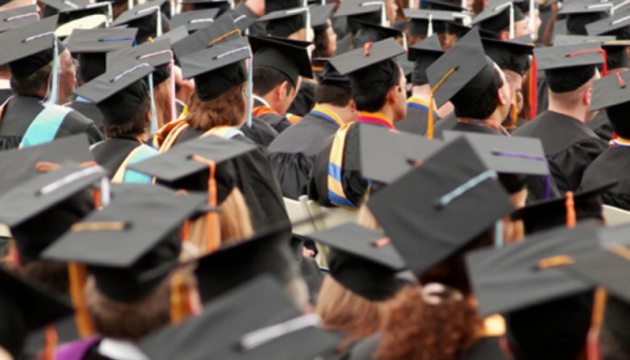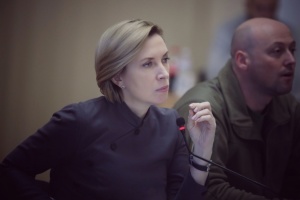
MoE wants to return at least 100,000 foreign students to Ukraine
This was stated by Deputy Minister of Education and Science Mykhailo Vynnytskyi in an interview with Ukrainian Radio, Ukrinform reports.
Vynnytskyi reminded that before the full-scale invasion, 73,000 foreign students were studying in Ukraine, mostly from India, North Africa, the so-called Global South, post-Soviet countries, etc. The vast majority of them - about 68,000 - were studying medicine.
“We need to bring these students back and we need to increase these numbers. We have set a goal, I can announce it, that in the near future, after the war is over, we need to return at least 100,000 students to Ukraine,” the deputy minister said.
At the same time, he said, the goal is that most of these students should study in Ukrainian.
“In fact, English is important for some professions, but if you go to study in Germany, you need to know German. If you go to study in England, you know English. If you go to the Czech Republic, you know Czech. Why should we demand otherwise?” - the official said.
He noted that the cost of a student's stay in Ukraine, including dormitory, tuition, etc., is approximately 10,000 euros per year. “This is a billion euros annually in our economy. Our education is competitive, we have the capacity to do this. We need to invest in infrastructure now to make it attractive. And we have the opportunity to create such an economic driver with the network of higher education institutions that we have today,” the Deputy Minister emphasized.
Commenting on the reform of higher education, he noted that today the Ministry of Education has 121 higher education institutions, and this number is planned to be reduced to 100 in the future by merging universities. “This is a 'soft figure'. This does not mean that if we have 101 institutions, we have failed the reform, and if we have 99, everything will be fine. This is not what we are talking about at all. Today we are doing a certain analysis of the demographic situation in the regions, of successful educational centers,” he said.
Vynnytskyi emphasized that the network of higher education institutions in Ukraine was built for a much larger number of people than there are today.
“If you look at the figures for the country, 15 years ago we had more than 600,000 school graduates every year. This year we have barely 300 thousand. Of these, about 250-270,000 enter higher education institutions. My point is that our network of higher education institutions was built and existed for a much larger number of people than we have today. And the issue is not only that people are leaving, the occupation, etc. The issue is that there are simply fewer children being born,” the Deputy Minister said.
He noted that each university that is currently undergoing the process of merging is investing USD 1.5 million in scientific teaching equipment. Although the reform is proceeding rather slowly in general, the Ministry of Education and Science has already conducted 8 such mergers over the past year.
“Over the past year, we have managed to hold 8 (soon to be 9) such associations. This is a record number,” the deputy minister emphasized.
In his opinion, students will benefit first of all, because a larger university has a wider choice of courses.
“It is very important to talk about the content of education. The content of education is formed when a student has a choice of subjects. When they can, for example, choose two teachers for one subject, because then the best teacher will have more students, and in this way we will improve the quality of education,” Vynnytskyi emphasized.
As reported, at the beginning of Russia's full-scale aggression against Ukraine, more than 2,500 students from around the world found themselves in the area of large-scale hostilities.




